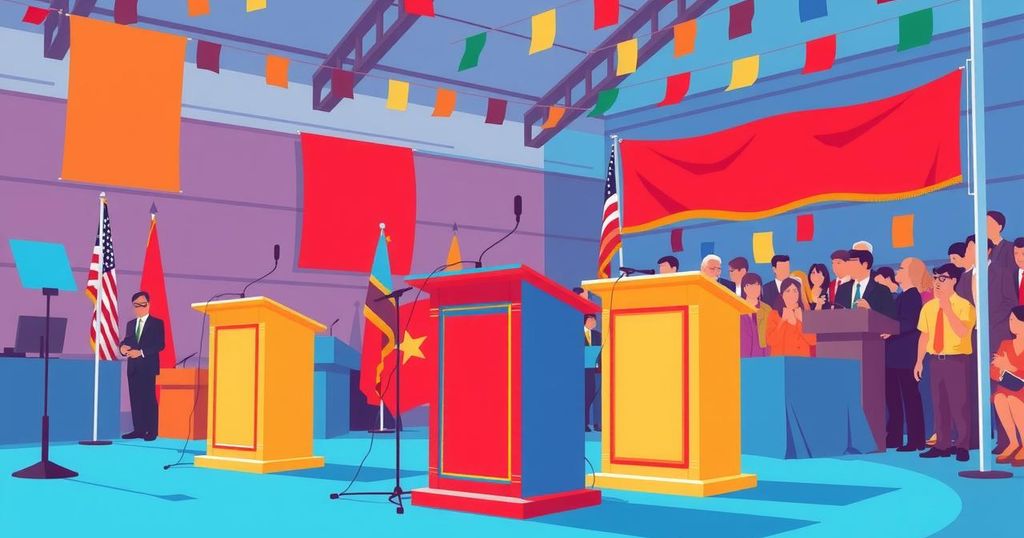Politics
ALLEGATIONS, ASIA, BEIJING, BROOKFIELD, BROOKFIELD ASSET MANAGEMENT, BROWN, CANADA, CANADIAN SECURITY INTELLIGENCE SERVICE, CBC NEWS, CHINA, CHINESE CENTRAL BANK, CONSERVATIVE PARTY OF CANADA, CSIS, FOREIGN INTERFERENCE COMMISSION, GLOBE AND MAIL, GOVERNANCE, GOVERNMENT, INDIA, LIBERAL, LIBERAL PARTY, MARK CARNEY, NATIONAL SECURITY, NORTH AMERICA, PATRICK BROWN, PIERRE POILIEVRE, POILIEVRE, THE GLOBE AND MAIL
Sophia Klein
Potential Influence of India in Conservative Party Leadership Race
Reports indicate that Indian agents may have sought to influence the Conservative Party of Canada leadership race, allegedly assisting Pierre Poilievre while attempting to undermine Patrick Brown. The Canadian Security Intelligence Service found no evidence that Poilievre or his team were aware of such actions. The discourse around foreign interference has intensified, notably involving India and China, with an inquiry deeming India the second most active nation in such matters.
Recent reports suggest that India may have played a role in the Conservative Party of Canada’s leadership race, particularly during the 2022 contest which resulted in Pierre Poilievre’s victory. An unnamed senior official from the Canadian Security Intelligence Service (CSIS) revealed that Indian agents allegedly raised funds and organized support within the South Asian community for Poilievre’s campaign, although the efforts were not deemed extensive or highly coordinated.
While this influence allegedly occurred, the CSIS assessment indicated that there was no evidence of Poilievre or his close associates being aware of the actions of these agents. CSIS clarified to a foreign interference commission that they had no basis to believe that the candidates affected were aware of any foreign support. A separate report from CBC News previously noted that Indian agents attempted to undermine Patrick Brown’s candidacy in the same race, a claim Brown has denied, asserting that he does not believe any interference affected the election outcome.
Poilievre won the leadership contest decisively, securing nearly 68% of the first-round votes. He has publicly stated that his victory was legitimate and has rejected calls to obtain security clearance to review foreign interference documents, arguing that he has previously held such clearances as a cabinet minister and opposition leader. Liberal Party leader Mark Carney criticized Poilievre’s stance as puzzling, while Poilievre countered by questioning Carney’s recent ties with China, citing a meeting he had in Beijing last year that he found questionable.
Of notable concern is the reported execution of four Canadians in China on allegations of drug-related crimes earlier this year, which has added to tensions surrounding alleged foreign interference. The conversation around foreign interference was reignited when reports surfaced that China may have tried to influence the 2021 Canadian federal elections to favor the ruling Liberal Party.
The Canadian government is now particularly wary of potential foreign influence, with India and China noted as significant threats to the democratic process. The Security and Intelligence Threats to Elections (SITE) Task Force is monitoring election-related activities, with its chair warning that AI tools could be employed to interfere in upcoming elections. The final report from a foreign interference inquiry has categorized India as the second most active nation regarding electoral interference, following China, and highlights the critical role of foreign actors in Canadian electoral processes.
In summary, there is growing concern regarding foreign interference in Canadian politics, particularly by India and China. The allegations of interference in the Conservative Party leadership race raise serious questions about the integrity of the electoral process and highlight the need for vigilance in safeguarding democracy.
In conclusion, the reported influence of India on the Conservative Party of Canada leadership race underscores the complexities of foreign interference in Canadian elections. With both India and China being identified as key actors in potentially manipulating democratic processes, the need for robust monitoring and response strategies is paramount. The upcoming federal election on April 28 serves as a pivotal moment for Canada to address these critical issues surrounding foreign influence clearly and decisively.
Original Source: www.hindustantimes.com








Post Comment